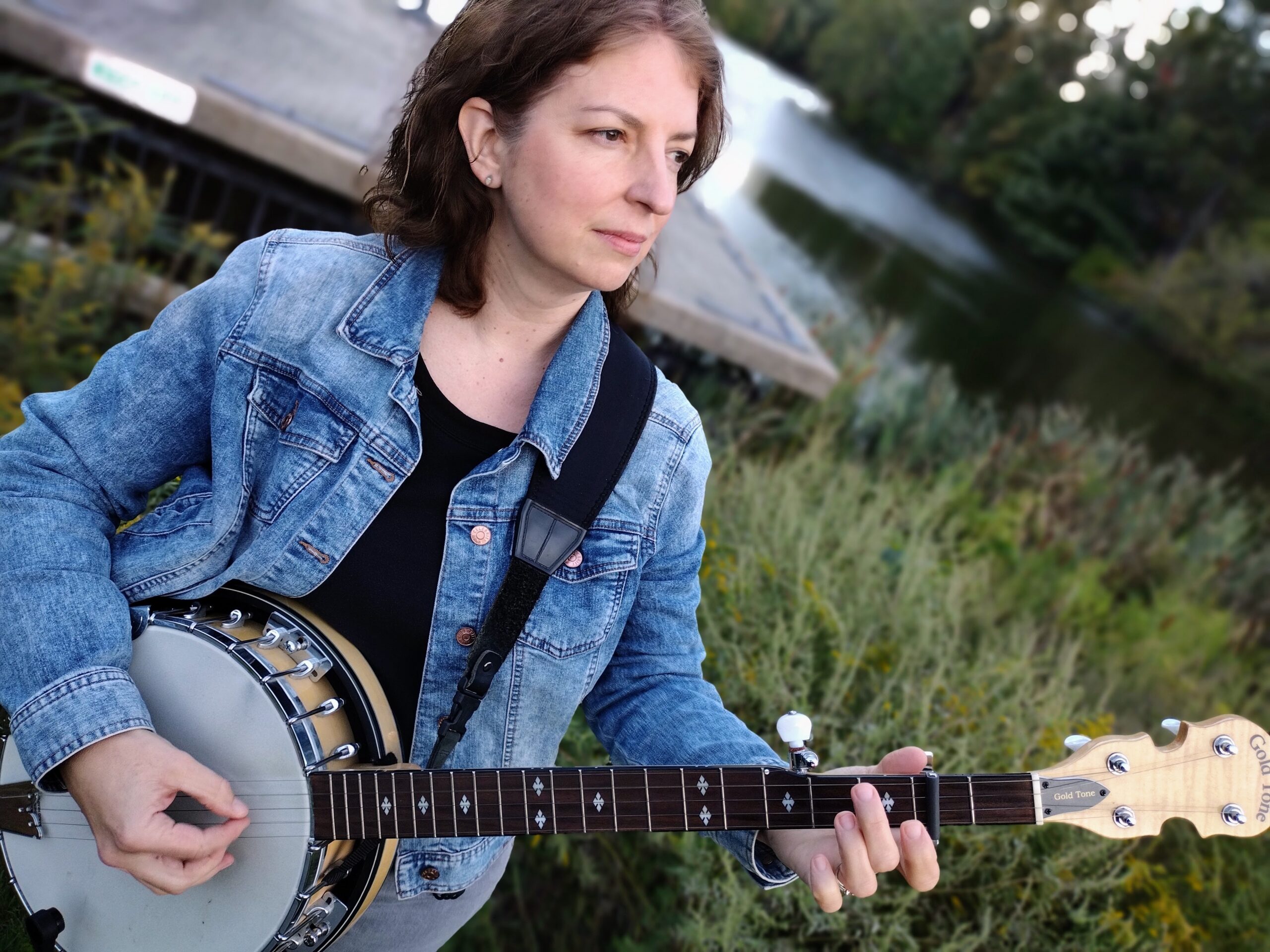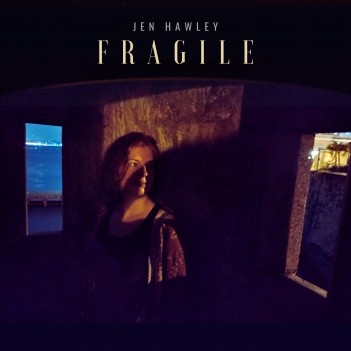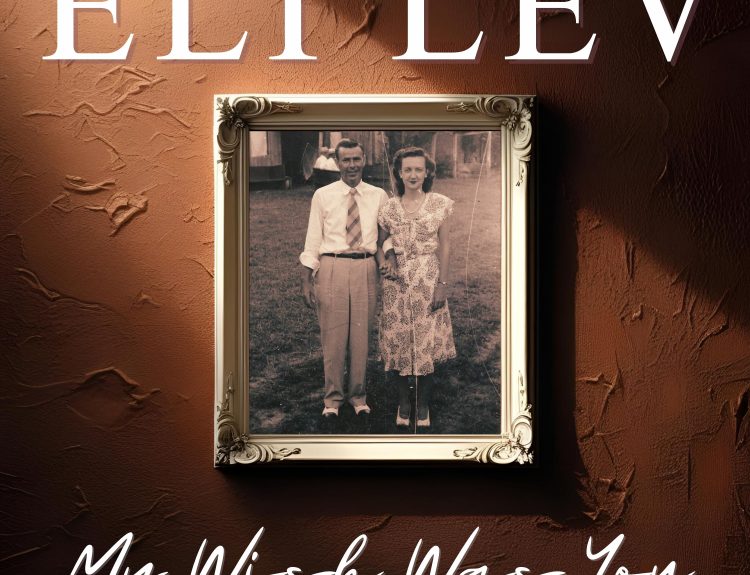Some artists like to bare it all at first glance. Instead of coming out with songs that tell many interesting short stories, Jen Hawley went the extra mile. Coming from the heart of Germantown, MD, she’s an extraordinary artist who emerges as a beacon of musical authenticity with her recent album, “Fragile,” which is a near-perfect album with some beautiful and brilliant music that tantalizes our imaginations. Released on November 10, this collection of ten soul-stirring songs transcends the boundaries of Americana, weaving a tapestry of emotions that resonate deeply with human experience. Now, let’s find out how fragile this album is, so we can get a deeper understanding. Please stick with me as I dig into each song.
The album begins with the jazzy embrace of “Handed Heaven,” where Hawley’s smooth vocals dance elegantly over a musically lush score. The song sets the stage for the emotional journey ahead, combining elements of jazz and soul to deliver a captivating opening that draws us into Hawley’s world. It’s a poignant and evocative song that delves into the transformative power of divine grace and the enduring hope it brings. The lyrics vividly portray a journey filled with pain, struggle, and faith, with the singer, Jen Hawley, determined not to turn back until encountering a smile. The metaphor of a barren womb and a son who died young but returned to life encapsulates the theme of renewal and resurrection, suggesting that even in the face of despair, there is potential for rebirth and redemption. Also, the repetition of the phrase “You handed heaven to us” reinforces the idea of a benevolent force delivering a profound sense of joy and salvation. This is a soul-stirring composition that skillfully weaves together themes of faith, redemption, and the unending nature of divine grace.
Transitioning seamlessly into “Will the Circle Be Unbroken,” Hawley explores the blues, infusing the track with poignant reflections on loss. Her expressive delivery, coupled with the mix of bluesy instrumentation, creates a powerful ode to the cyclical nature of life and the enduring connections we share. Delving into the themes of loss, grief, and the hope for a reunion in the afterlife, the lyrics of this song portray Jen Hawley’s emotional turmoil as she witnesses the funeral procession of her mother. The plea to the undertaker to “drive slow” reflects the reluctance to let go and the acknowledgment of the pain of seeing a loved one depart. The recurring question, “Will the circle be unbroken?” serves as a contemplative refrain, emphasizing the uncertainty of life’s continuity and the possibility of a spiritual reunion in the sky, while the imagery of a lonesome journey home, with siblings crying and home left “sad and lone,” captures the profound loneliness that follows the departure of a matriarch. This song combines sorrowful realism with a hopeful anticipation of a better home beyond, making it a timeless and evocative piece that resonates with the universal human experience of grief and longing for eternal connection.
The third and title track, “Fragile,” opens with a gentle melody and stands as the album’s emotional centerpiece. In this song, Hawley bares her soul and paints a vivid picture of the heaviness that accompanies the absence of a loved one, capturing the raw and overwhelming emotions that come with navigating life after their departure. The recurring theme of the dark bleeding into the light symbolizes the persistent shadow of sorrow. At the same time, the inquiry into when hope left our sight reflects the universal quest for resilience in the face of adversity. The touching line, “I am so weary, heavy burdened, I need rest,” encapsulates the weariness and longing for relief and the reassurance of finding rest amid life’s struggles. The song’s ethereal quality, combined with Hawley’s poignant lyrics, makes it a poignant meditation on life’s fragility and the human spirit’s resilience.
The fourth and shortest track on the album, “The Moment,” captures a contemplative atmosphere, allowing us to reflect on the fleeting nature of time. This song unfolds as a poignant ballad, its emotional resonance echoing through the repetitive refrain that underscores both joy and sorrow. The opening lines, “Heaven just got more beautiful,” suggest a celestial celebration upon the arrival of someone significant. The subsequent repetition intensifies the impact, emphasizing the profound beauty of the moment. However, the tone shifts with the refrain’s variation, as the lyrics mirror the sentiment of saying goodbye. Through its simplicity and repetition, “The Moment” delicately captures the essence of life’s beauty found in both joyous arrivals and the inevitable farewells, leaving us with a lingering contemplation on the profound cycles of existence. Hawley’s emotive vocals, accompanied by evocative instrumentation, create a musical moment that feels both introspective and universally relatable.
Unfolding with a warmth that envelopes us and invites us into the intimate world of the song, the fifth track, “Eloise,” is a standout track and showcases Jen Hawley’s storytelling prowess. It’s a nostalgic song that beautifully captures the essence of a deep and enduring friendship and the lyrics evoke a sense of reminiscence, transporting us to a bygone era filled with youthful innocence and carefree adventures. The mention of Droster Road and Ferris Lane suggests a specific place and time, contributing to the vivid imagery of the song. The recurring theme of time standing still with the titular character, Eloise, highlights the timeless nature of their friendship, as if the moments spent together were suspended in a perpetual state of joy. Also, the use of honeysuckle fields and carved hearts on a secret tree adds a layer of sentimentality, emphasizing the innocence and purity of connection. All in all, “Eloise” beautifully captures the essence of friendship, the passage of time, and the enduring impact of shared moments on the soul, and Hawley’s vocals, coupled with emotive instrumentation, create a captivating storytelling experience.
Transitioning into an instrumental piece, “Sorrow For A Friend” is a breathtaking interlude that allows us to immerse ourselves in the album’s overarching emotions. The cello, violin, and viola, courtesy of Katrina Hawley, Robin Huang, and Jackie Su, respectively, elevate this track to a symphonic meditation on grief. This piece creates a musical canvas that speaks volumes without words.

In “Just Last Fall,” Jen Hawley’s singer-songwriter vibe takes center stage. The song is a testament to the cyclical nature of seasons, both in nature and in life. It’s a song that beautifully captures the cyclical nature of life, love, and resilience, as the lyrics vividly describe the act of planting flowers in the fall, symbolizing hope and anticipation in the face of impending challenges. The recurring theme of a harsh winter and the struggle for survival serves as a metaphor for life’s difficulties and Hawley’s reflection on falling apart and the inevitability of decay adds a layer of introspection, suggesting that life is a constant process of change and renewal. The juxtaposition of the hard winter’s night with the whisper of spring conveys a powerful message of endurance and the promise of new beginnings. The line “Can I survive this bitter cold to see the buds come up in May?” encapsulates the uncertainty and perseverance inherent in the human experience. The song’s melodic simplicity belies its emotional depth, and Jen Hawley’s vocals are a comforting embrace, inviting us to connect shared experiences of love and loss.
With “Miss You More,” the album navigates the complex terrain of longing and remembrance. The lyrics convey a sense of longing and melancholy as Jen Hawley reflects on the passage of time since their loved one’s birthday. The verses vividly depict the ache of missing someone and the profound void left behind. The imagery of the scent of lavender filling the air and the memories flooding in creates a powerful sensory experience, evoking the bittersweet nature of reminiscence. The chorus, with its repetition of “There’s nothing special ‘bout today, I just miss you to the core,” encapsulates the simplicity and universality of grief. The plea for the departed to visit more frequently, even if only in memory, adds a layer of desperation and a yearning for connection. Jen’s vocals, filled with raw emotion, convey the universal experience of missing someone dearly. The song resonates with authenticity and aching sincerity.
Opening with a cinematic quality and inviting us to reflect on the ebb and flow of existence, “Sic Vita,” the ninth track introduces a different flavor to the album, thanks to Jeremie Hamilton’s violin gracing the song. Composed by Jen Hawley and with lyrics penned by the prolific William Stanley Braithwaite, this is a captivating song that envelops us in a tapestry of emotion and contemplation. The poetic verses, such as “Heart free, hand free, blue above, brown under,” evoke a sense of liberation and connection with nature. The recurring theme of freedom, from the heart to the hand, and the imagery of the sky above and the earth below suggest a harmonious relationship with the world. Hawley’s musical composition complements Braithwaite’s verses, creating a melody that mirrors the ebb and flow of life’s diverse moments. “Sic Vita” becomes a poignant celebration of the beauty found in love, work, and the intrinsic wonders of our shared existence. I loved the fusion of genres; it added a dynamic layer to the album’s sonic palette.
Closing the album with “Words and Songs,” Jen Hawley leaves us with a sense of hope. This song is a heartfelt expression of gratitude and worship, beautifully capturing the essence of a deep spiritual connection. The lyrics eloquently convey a profound appreciation for God’s presence in both day and night, highlighting moments of reflection and recognition of divine influence. Jen Hawley acknowledges the significance of God’s Word, salvation, and the sustaining breath of life. The choice of phrases like “you didn’t give up, you didn’t give in” and “you chose to show up, you chose to press in” suggests a resilient and steadfast faith. “Words and Songs” is my favorite on the album if I’m being honest as it’s a moving piece that beautifully articulates the complexities of the human-spiritual relationship and the profound impact of divine presence on our lives. Hawley’s vocals were expressive and beautiful and she delivered with a charm that lets you feel the song on a spiritual level. Thanks to the melody too, it took me to the heavenly realm.
Overall, Jen Hawley’s “Fragile” is not merely an album; it’s a heartfelt journey that transcends musical boundaries. From the jazz stylings of “Handed Heaven” to the emotional depth of “Eloise” and the symphonic beauty of “Sorrow For A Friend,” every track is a masterpiece in its own right. Hawley’s vocals, combined with the stellar production and instrumentation, make “Fragile” a must-listen for anyone seeking an authentic and uplifting musical experience. In this album, Jen Hawley has not only shared her journey but has created a resonant space for listeners to find solace, connection, and ultimately, hope.
Listen to the “Fragile” album by Jen Hawley on Spotify and let us know your thoughts.
You can follow Jen Hawley here for more information.






